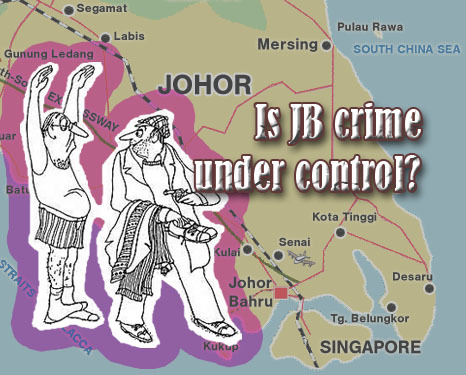I was for a short stint a resident of JB, staying here for almost a year some 47 years ago.
JB has changed quite out of recognition in the past four to five decades, both for good and ill.
Firstly, I would not qualify to be a JB-ite, as there are people who now say that you are not a true JB-ite unless you have been a victim of snatch theft, robbery or other crime in JB.
Secondly, the haze from Indonesia forest fires are back, but in JB the people had been under a permanent haze in the past two decades with the JB air thick with the fear of crime which haunts the people, turning their waking hours into nightmares about their personal safety and those of their loved ones whether in the streets, public places or the privacy of their homes.
Why is the Parliamentary Caucus on Human Rights and Good Governance starting its series of public hearings on “Fight Rising Crime” in Johor Baru?
Firstly, JB is the capital of crime with the worst crime index and the worst fear of crime for any metropolitan area in the country.
The Police have said the crime in JB is under control and that it is a safe city to live. Whether crime in JB is under control and a safe city must be a verdict made by the people of Johor and not the Police — and this is the reason for the Parliamentary Caucus’ public hearing.
This is also why there should be a police revolution and not just police reform in the country where the concept of “Policing for People” becomes the overriding objective of the Malaysian Police in democratic Malaysia, with the people as the primary voice in determining the police role, responsibility and strategy in fighting and reducing crime in JB, Johore and Malaysia.
We cannot continue to be in denial any more about the high crime index and oppressive fear of crime in JB.
We should not need to cross the Causeway to Singapore to feel safe. If we are not ambitious enough to make JB even safer than Singapore, we have the right to demand that residents, visitors and investors should feel as safe in JB as in Singapore.
We have a right to demand that the definition that a person is not a true JB-ite unless he or she had been a victim of crime in JB becomes history and a nightmare of the past. Continue reading ““Policing for People” – police revolution needed”

